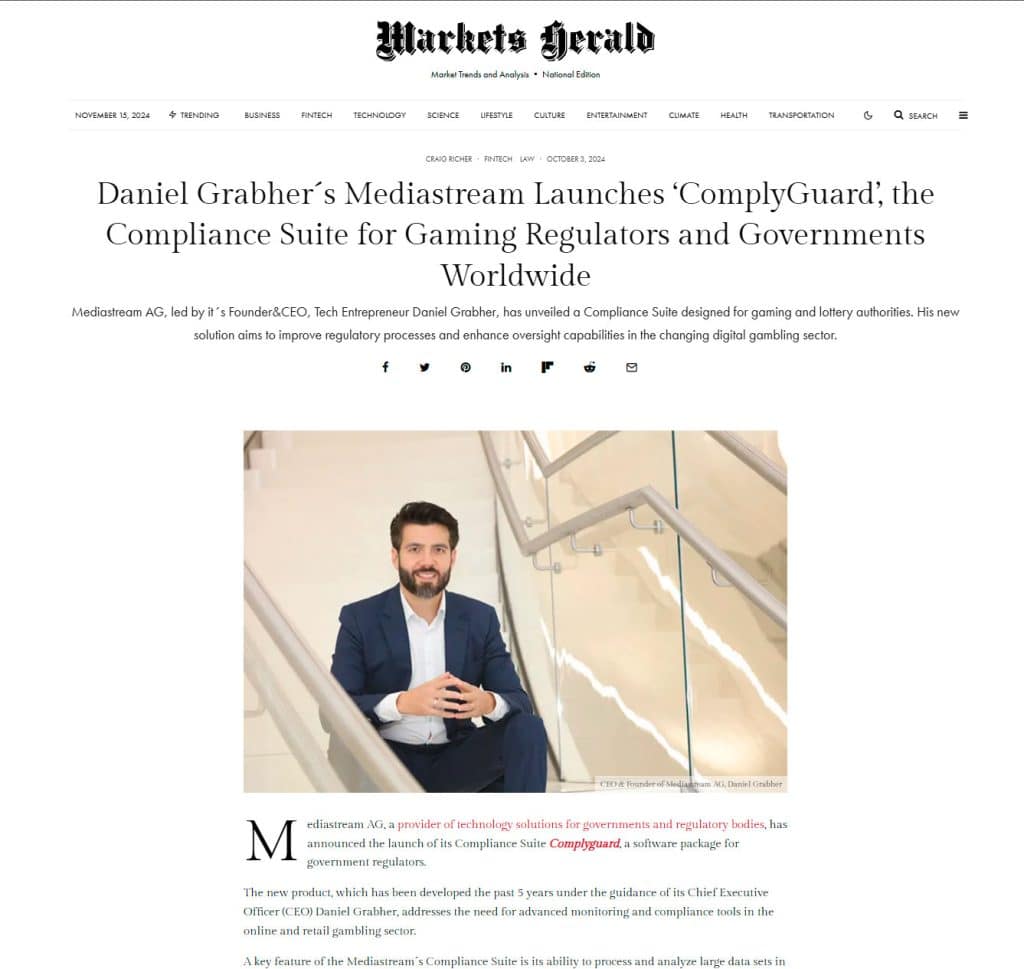Introduction
As the world becomes more interconnected and digitized, so does the domain of betting and gambling. As a result, enforcing gambling laws and regulations poses unique challenges. Enter technology: a dynamic tool that’s revolutionizing how national authorities and governments monitor, regulate, and ensure compliance in the gaming industry.
1. Digital Monitoring: The Eye in the Sky
The vast expanse of the gambling industry, spanning both online and land-based operations, requires an omnipresent oversight mechanism. Advanced monitoring solutions, like CMS, employ:
- Real-time data tracking to instantly detect irregularities or non-compliance.
- Deep analytics to understand betting patterns, pinpoint potential fraudulent activities, and safeguard the industry’s integrity.
2. Data Security: Shielding Player Information
With the rise in cyber threats, protecting player data has never been more crucial. Modern technological solutions:
- Use end-to-end encryption, ensuring that sensitive player data is transmitted and stored securely.
- Implement multi-factor authentication, adding an extra layer of security against unauthorized access.
3. Facilitating Transparent Reporting
For a regulator, having an accurate and clear picture of an operator’s activities is essential. Through technological platforms:
- Operators can provide standardized reports at regular intervals, ensuring transparency.
- Regulators can access consolidated dashboards, giving them a comprehensive overview of the market at a glance.
4. Educative Initiatives and Training Modules
The ever-evolving landscape of betting and gambling requires continuous learning. Technology aids in:
- Crafting interactive webinars and training sessions for operators, ensuring they’re up-to-date with the latest regulations.
- Creating awareness campaigns for players, educating them about responsible gambling and their rights.
5. Integration of AI and Machine Learning
Advanced technologies like AI and machine learning are becoming integral to the regulatory framework. These technologies:
- Predict emerging betting trends, allowing regulators to proactively adapt their strategies.
- Detect anomalous patterns, which might indicate fraudulent activities or system vulnerabilities.
6. Accessibility and Communication
With diverse stakeholders involved, clear communication channels are essential. Technology facilitates:
- Feedback mechanisms where players and operators can voice concerns, report issues, or provide suggestions.
- Mobile accessibility, ensuring that stakeholders can access vital information on-the-go, enhancing responsiveness and decision-making.
Conclusion
As the adage goes, “To be prepared is half the victory.” In the domain of gambling regulation, preparation comes in the form of embracing and integrating technology. By doing so, regulators not only ensure robust oversight but also pave the way for a safer, more transparent, and thriving betting and gambling industry.



